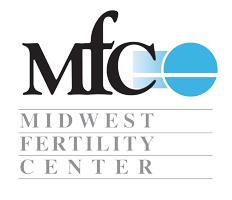Pregnancy, often hailed as a time of joy and anticipation, can also be a period of immense emotional complexity. While the journey to motherhood is filled with moments of excitement and wonder, it can also bring about unexpected challenges, including mental health struggles such as depression. In this blog, we delve into the topic of depression during pregnancy, shedding light on its prevalence, causes, symptoms, and most importantly, avenues for support and healing.
Understanding Depression During Pregnancy:
Depression during pregnancy, also known as antenatal or prenatal depression, is more common than many might realize. While exact statistics vary, research suggests that approximately 10-20% of pregnant women experience depression at some point during their pregnancy. This condition can manifest differently for each individual, ranging from mild to severe symptoms.
Causes and Risk Factors:
The causes of depression during pregnancy are multifaceted and can be influenced by a combination of biological, psychological, and social factors. Hormonal changes, particularly fluctuations in estrogen and progesterone levels, play a significant role in predisposing some women to depression during pregnancy. Additionally, personal or family history of depression, stressful life events, relationship difficulties, financial concerns, and lack of social support can all contribute to the development of prenatal depression.
Symptoms:
Recognizing the symptoms of depression during pregnancy is crucial for timely intervention and support. Common signs may include:
1. Persistent feelings of sadness or emptiness
2. Loss of interest or pleasure in activities once enjoyed
3. Changes in appetite or weight
4. Sleep disturbances (insomnia or excessive sleeping)
5. Fatigue or loss of energy
6. Difficulty concentrating or making decisions
7. Feelings of worthlessness or guilt
8. Thoughts of self-harm or suicide
It’s essential to note that experiencing some of these symptoms doesn’t automatically mean a woman is clinically depressed. However, if these feelings persist and interfere with daily functioning, seeking professional help is advisable.
Impact on Pregnancy and the Baby:
Untreated depression during pregnancy can have significant implications for both the mother and the unborn baby. Maternal depression is associated with an increased risk of complications such as preterm birth, low birth weight, and preeclampsia. Moreover, it can affect the mother-infant bond, potentially leading to difficulties with attachment and caregiving postpartum. Research also suggests that children born to mothers who experienced depression during pregnancy may be at a higher risk of behavioral and emotional problems later in life.
Seeking Support and Treatment:
If you’re experiencing symptoms of depression during pregnancy, know that you’re not alone, and help is available. The first step towards healing is reaching out to a healthcare provider who specializes in prenatal mental health. They can offer a comprehensive assessment and recommend appropriate treatment options, which may include therapy, medication, lifestyle changes, or a combination thereof. Additionally, joining support groups or seeking counseling can provide valuable emotional support and coping strategies.
Self-Care Strategies:
In addition to professional treatment, there are several self-care strategies that can help alleviate symptoms of depression during pregnancy:
1. Prioritize self-care activities such as relaxation techniques, mindfulness, and gentle exercise.
2. Maintain a healthy diet rich in fruits, vegetables, whole grains, and lean proteins.
3. Ensure adequate rest and sleep, aiming for 7-9 hours per night.
4. Engage in activities that bring joy and fulfillment, whether it’s spending time in nature, practicing creative arts, or connecting with loved ones.
5. Set realistic expectations for yourself and don’t hesitate to ask for help when needed.
Depression during pregnancy is a significant mental health concern that deserves attention and support. By raising awareness, reducing stigma, and providing access to comprehensive care, we can empower pregnant individuals to navigate this challenging journey with resilience and hope. Remember, seeking help is not a sign of weakness but a courageous step towards healing and well-being—for both you and your baby. https://mfcfamily.com/

